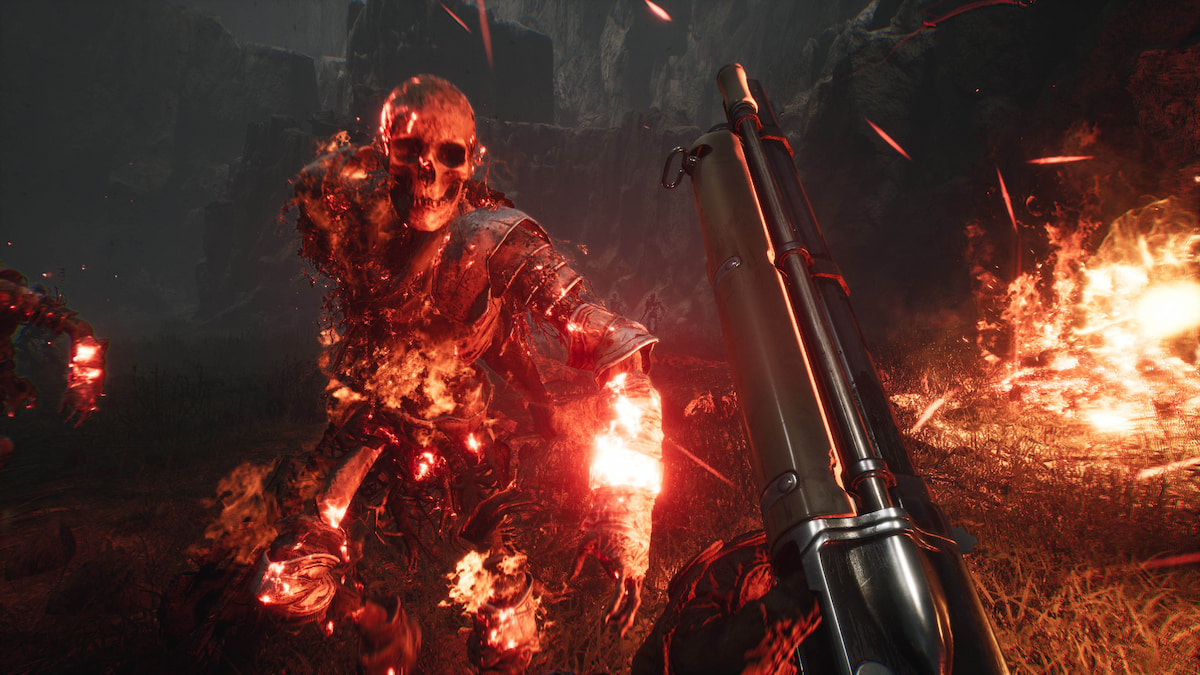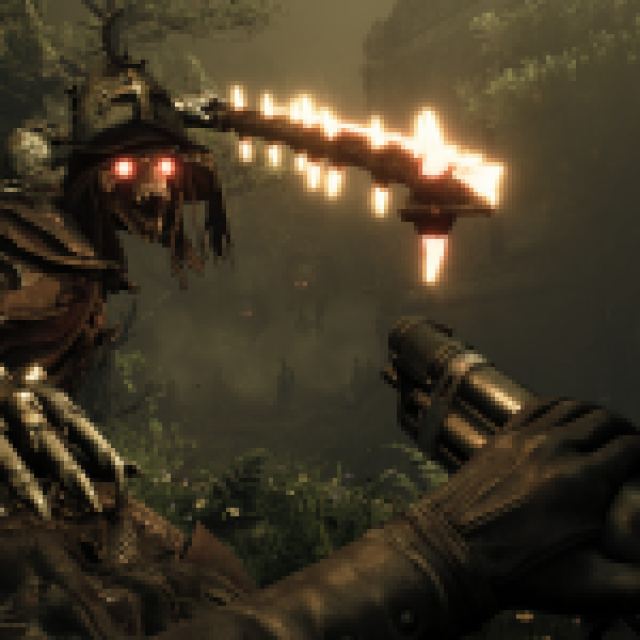Witchfire Has Left Me Spellbound | Early Access Impressions
I am bloodied, yet blissful.

While Witchfire may only be the second title officially under The Astronauts’ belt, it’s just one of many notches added to the developers’ long and rich history of game development. The indie studio, consisting of a small group of developers in Poland, was most recently responsible for the horror adventure The Vanishing of Ethan Carter. Still, some of its members also created critically acclaimed first-person shooter hits like Painkiller and Bulletstorm in their previous studio, People Can Fly. After some time in its nightmarish world, it’s clear how those past projects helped mold what Witchfire is today, from its photogrammetric landscapes to its affinity towards blasting otherwordly occultists away in spooky forests.
..And the Only Prescription Is More Witchfire
As far as my personal tastes are concerned, Witchfire came out swinging as a hodgepodge of the best elements from some of my favorite game genres. Its smooth and silky gunplay gives me that comfortable feeling of a Bungie title’s tight and responsive controls while its gorgeous, gothic world welcomes me into a beautiful yet unsettling atmosphere. It’s punishing, but not too punishing, sprinkling just enough roguelite elements into the mix to provide a challenging and rewarding gameplay loop that never feels tiresome.


From the moment you start, Witchfire’s tone is set in stone – you are alone in this adventure, and the only other living things are hellbent on ripping you apart. The game’s hub area isn’t immediately welcoming, and I get the feeling that’s by design. Aside from a brief tutorial area, you are presented with various workstations and passageways, some being accessible while others are not, and it’s up to you to figure out exactly what each does.
It’s a strange feeling when you realize that you need the game world more than it needs you. You’re the uninvited guest here, and only through trial and error will you start to piece together what’s going on. You’ll soon realize that the hub is essentially your base of operations, a haven where you’ll craft your potions, manage your equipment, and spend lots of time in front of a peculiar floating mirror. When you die, you’ll return to the hub world, forgetting the abilities you may have learned from your last expedition, but retaining your gear and weapons for the next run.


Frankly, the only thing missing is your character emerging from the Pool of Styx to confront your disapproving dad, who also happens to rule the underworld.
In typical early-access fashion, Witchfire has some kinks to iron out, but I never encountered any major bugs or design decisions that I couldn’t give a pass to. While the enemies are unique and memorable, their variety could be expanded upon and hopefully will as future content is introduced. The on-screen visual effects from exhaustion and damage are a bit extreme, and the bombardment of blurriness and double-vision is more disorienting than immersive. Damage falloff with mid-range weapons feels slightly ridiculous, rendering them almost useless if not within distance to see the whites of my enemies’ eyes. And enemy scaling as you level up seems like an odd choice for a game like this, where I never quite feel the power spike I’m seeking, often opting to stockpile spare Witchfire and not bother leveling up.


Yet, when Witchfire hits, it hits just right, and I’m pretty satisfied with the features included thus far. Despite only having two out of its six presented worlds available to play, all of the gear you collect and spells you learn have multiple tiers of upgradable unlocks to grind for. The workshop mirror provides plenty of incentive to keep venturing out to the same worlds. Scattered throughout those worlds are key items and cursed relics, indicating potential secrets and sidequests to look forward to.
After more than 12 hours of gameplay, I’ve only just beaten the boss of the first world and unlocked the entrance to the second. And yet, I can’t shake the feeling that I’ve left stones unturned and secrets undiscovered. I keep returning to that same world, just as enchanted and curious as before. Witchfire excels at pulling you back in for just one more run, and its enticing and rewarding gameplay loop makes me optimistic that The Astronauts are setting the course for a fantastic FPS.
A copy of this game was provided by the publisher.
